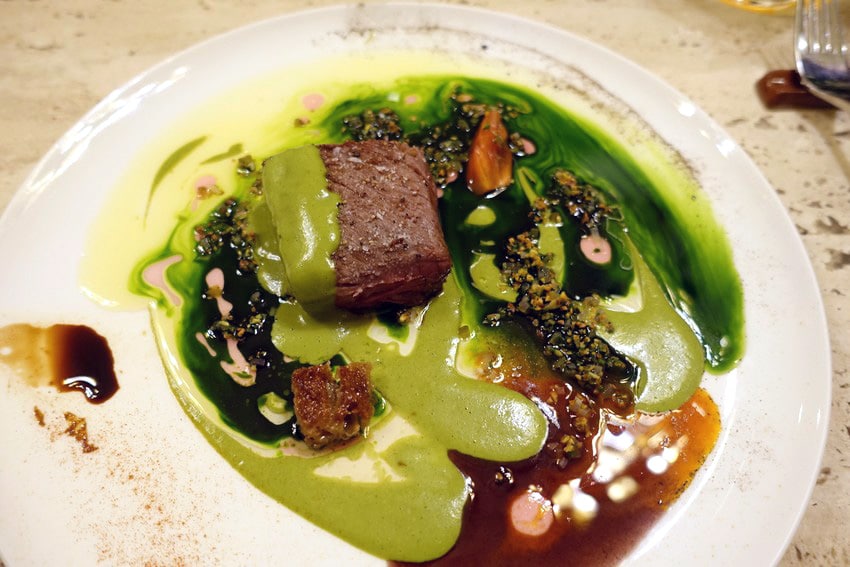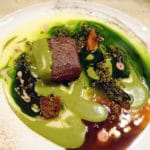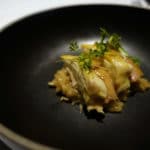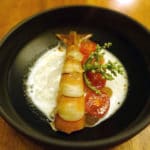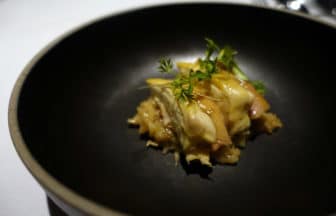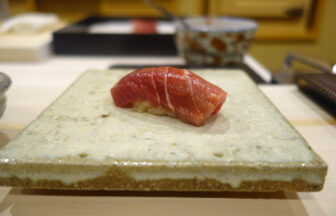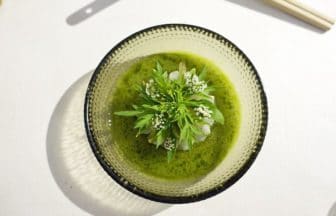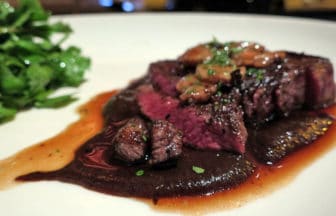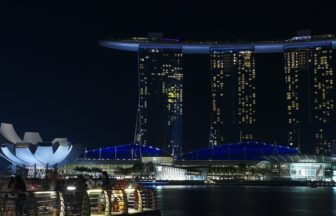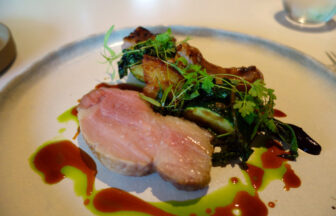“nouri” is a rising star in Singapore’s innovative restaurants, making its debut at No.39 in “Asia’s 50 Best Restaurants” in 2019 and earning one star from Michelin
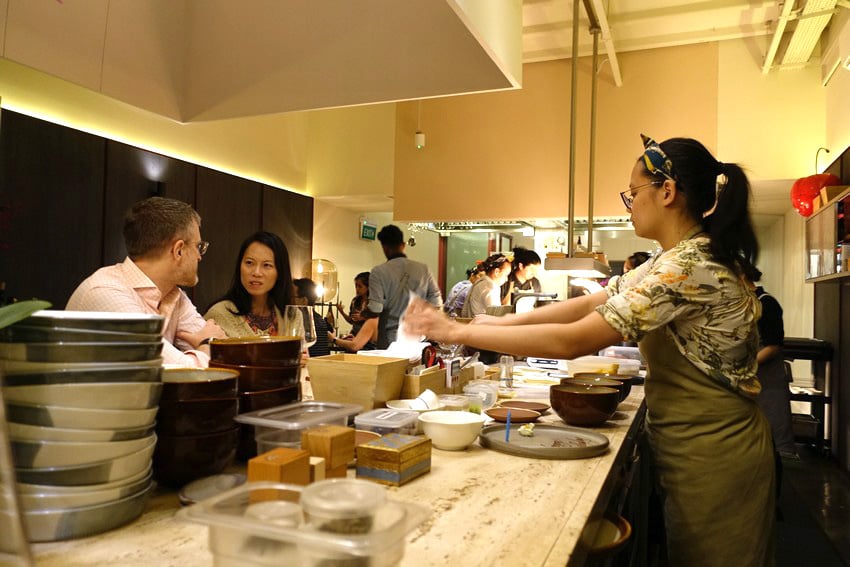
Ave. Budget: Lunch course 68-228 SGD, Dinner course 328 SGD/ “Michelin Guide Sigapore 2022″ 1-star,
Featured restraurant of Singapore Innovative, embodying a seamless world.
Aside from the food, I was surprised by the atmosphere of the restaurant.
I made a reservation just in time and got a seat, maybe because someone cancelled, but what I found amazing was that the chef was cooking right next to my table.
I have been to many open-kitchen restaurants, so I am familiar with environments where I can see the kitchen and cooking process, but this was a first-time experience for me.
The cooking itself also seems to fit perfectly with the word “seamless
Featured among innovative restaurants in Singapore
The location is Amoy Street in Chinatown.
It is a street where attention-grabbing food and drink establishments, such as “Native,” ranked 4th in the “Asia’s Best Bars 50,” are popping up one after another.
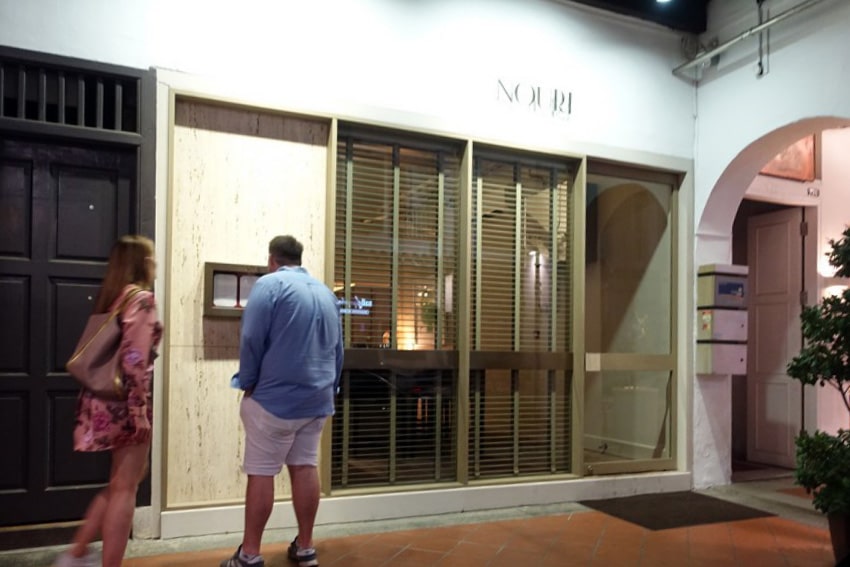
It opened in June 2017 and is led by Chef Ivan Brehm, who previously grew “Bacchanalia” into a one-starred Michelin restaurant.
After just one year of opening, it received a Michelin star, and two years later it was ranked 37th in the “Asia’s Best Restaurants 50.”
It can be said that this establishment is a notable restaurant that is steadily improving its evaluation at an Asian level in Singapore’s newer restaurants.
The dinner menu is omakase only, and there are several variations for lunch.
When seated, I was greeted with a message card.
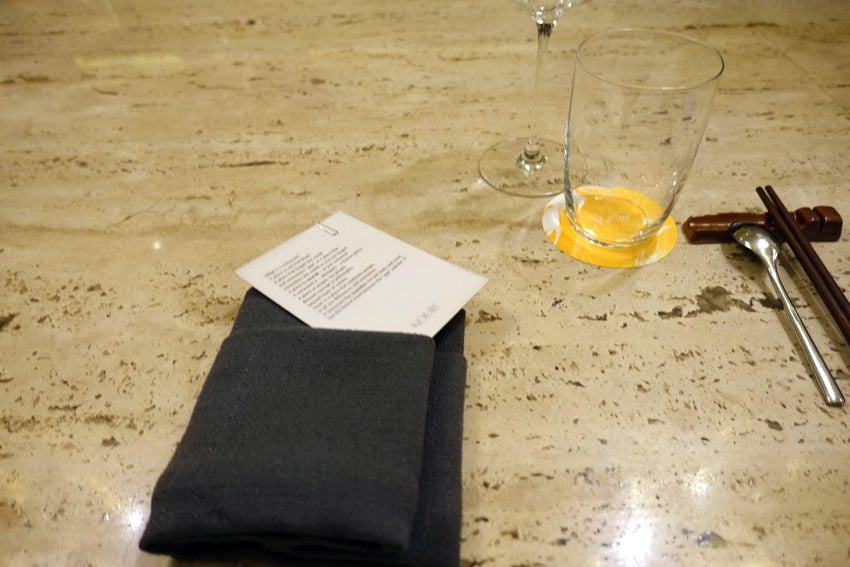
The message card that reads “What heals you, heals you.”
As you peruse the menu, you notice that the dinner menu is the “CHEF’S TASTING MENU,” which comes in 7 courses for SGD 180 (approximately JPY 14,500) or 5 courses for SGD 150 (approximately JPY 12,000).
The drink pairing for the 7-course menu is SGD 120, and for the 5-course menu, it is SGD 90. There is also a Japanese sake pairing available.
For lunch, there are set menus to choose from, including “Seafood” for SGD 54, “Meat” for SGD 62, and “Vegetable” for SGD 46. There is also a “5-COURSE OMAKASE LUNCH MENU” for SGD 108/138.
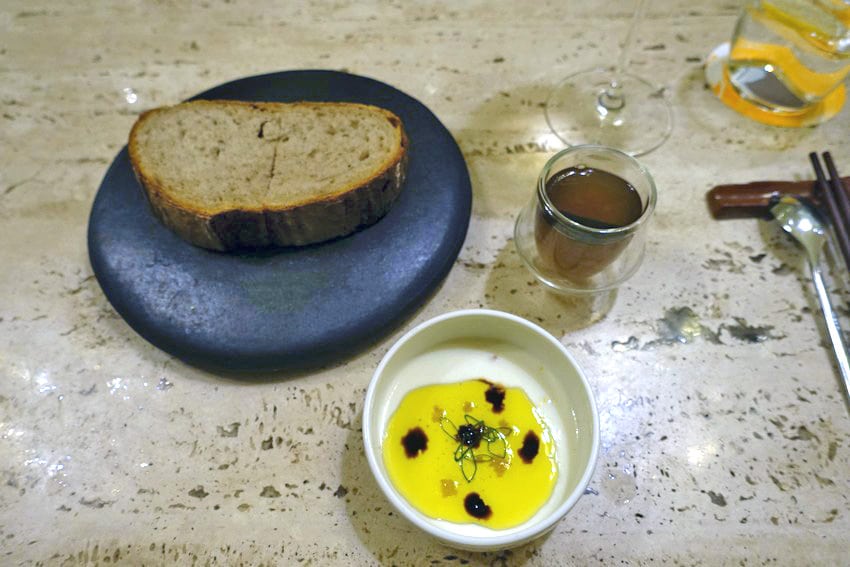
The first dish was bread with olive oil. The chef wants you to eat it as if it were a steamed rice bowl.
Then there was a bird breast on the top right. It had a slightly Japanese taste.
I was surprised to see a big piece of bread come out right from the start.
If it was a substantial portion, it would be a full meal.
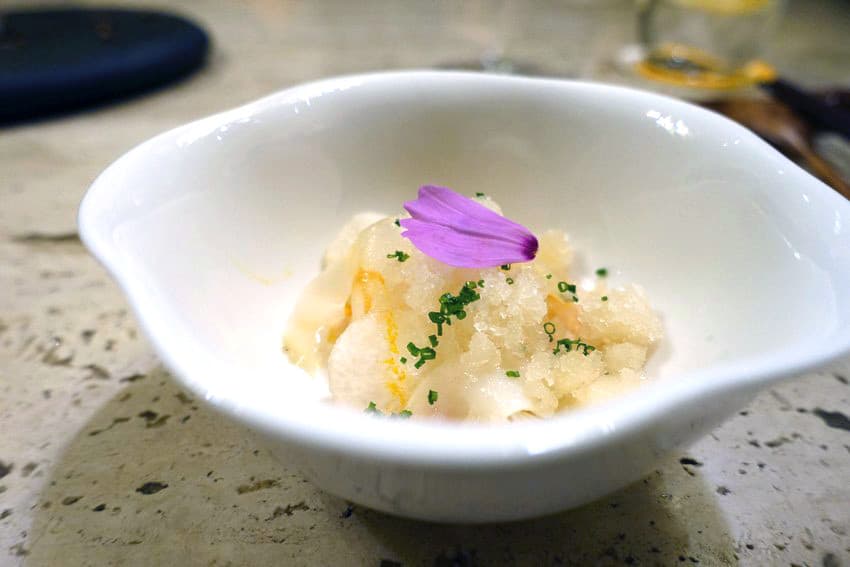
Next, a cold salad made with shrimp and abalone with pickled daikon as an accent.
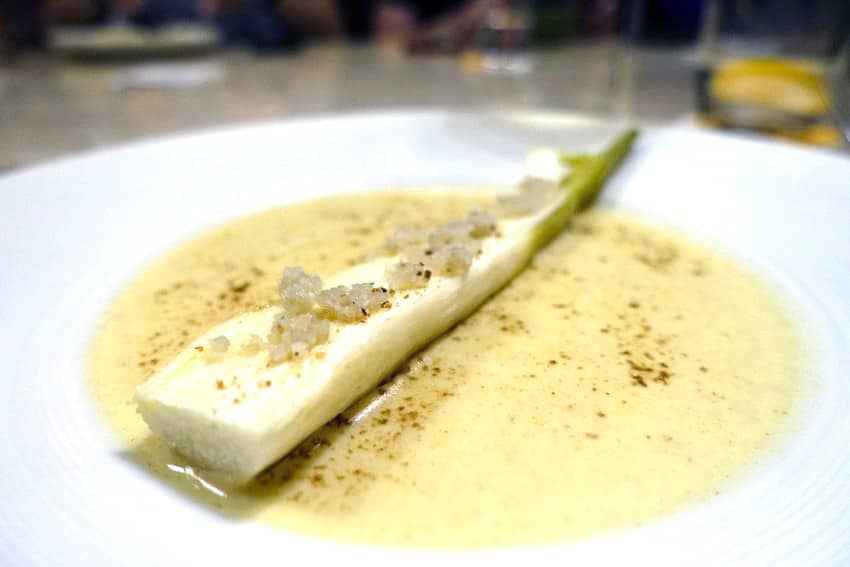
The next dish was Japanese mackerel, topped with flying fish roe, giving it a traditional Japanese taste.
However, the sauce was a Singapore-style curry cream, which gave it a distinct, non-Japanese flavor that could be experienced on the tongue.
I wonder what kind of developments await us next.
A main ingredient that floats on a liquid called sauce
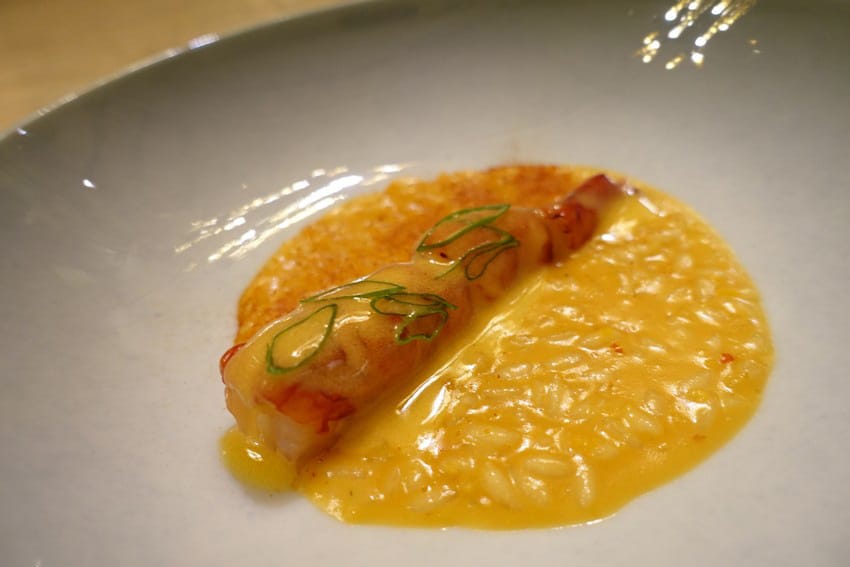
And then there’s the “Lobster Risotto.” It might be the dish that left the biggest impression.
The lobster was cooked just enough to be a little rare, and the lemon flavor was a bit strong.
Because the risotto was finished differently in the front and back, it was an interesting plate to compare by tasting.
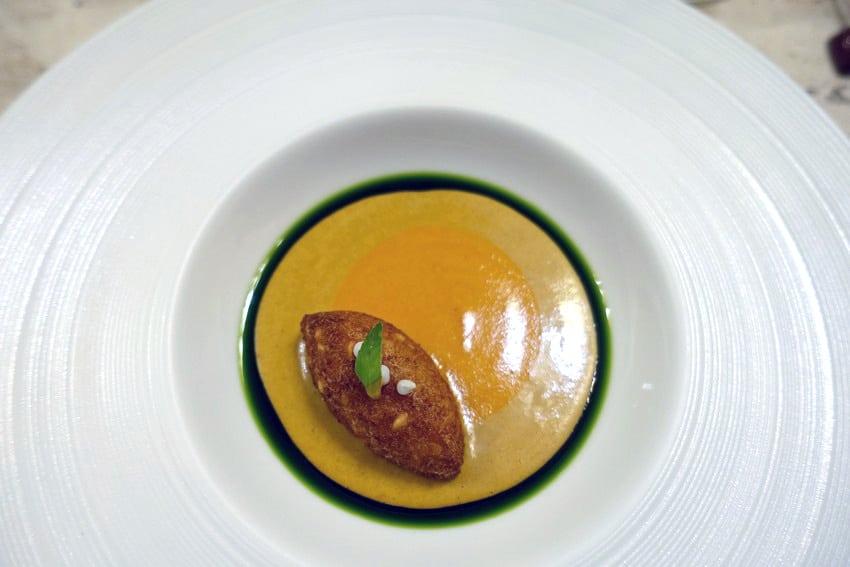
The croquette. The two-tone coconut curry creates a gradient, surrounded by green herbs.
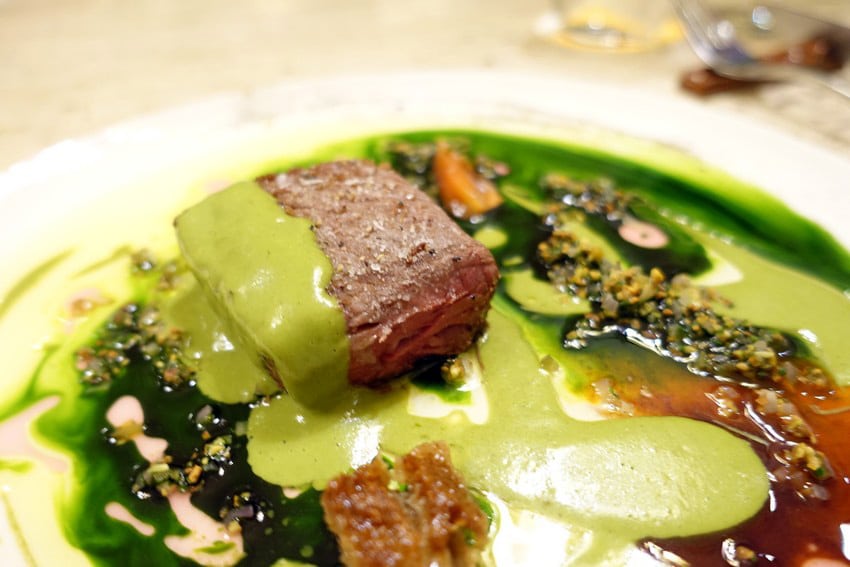
The main dish is grilled wagyu beef.
The sauce, or soup, is now like a painting by Jackson Pollock.
Express relationships for seamless cooking
By arranging the photos like this, it’s easy to understand, but the flavors are changed in each dish, although the composition of the presentation from the appetizer to the main dish is similar.
And in the liquids to semi-liquids, the main ingredients are floating in the same place.
I was thinking what kind of world view they want to present, and when the chef came to greet us, I asked him a little bit.
What he thought about when running this restaurant was that food is a connecting factor between people, and what he wanted to express through cooking was also the relationship.
He was interested in the origin of humans creating food, and how food connects the world.
Now there are categories like French cuisine, Italian cuisine, and Japanese cuisine, but if we say that all humans are the same, he said it might be good to look at the origin and try to find more delicious primitive dishes that anyone can enjoy.
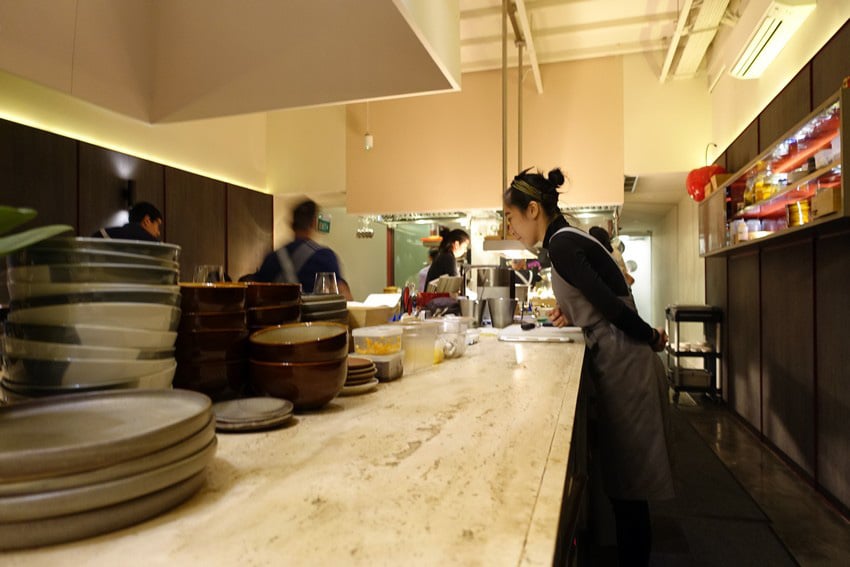
It could be said that the way the dishes are presented floating in the liquid-like substances is a reflection of a borderless world where boundaries blend together, rather than simply a world that transcends countries and cultures.
This restaurant may be taking steps towards a unique form of culinary expression that sets it apart from the innovative restaurants currently gaining attention in Asia, as you think about a seamless, finely divided world.
Even the vague texture of the marshmallow for palate cleansing seems to have some significance.
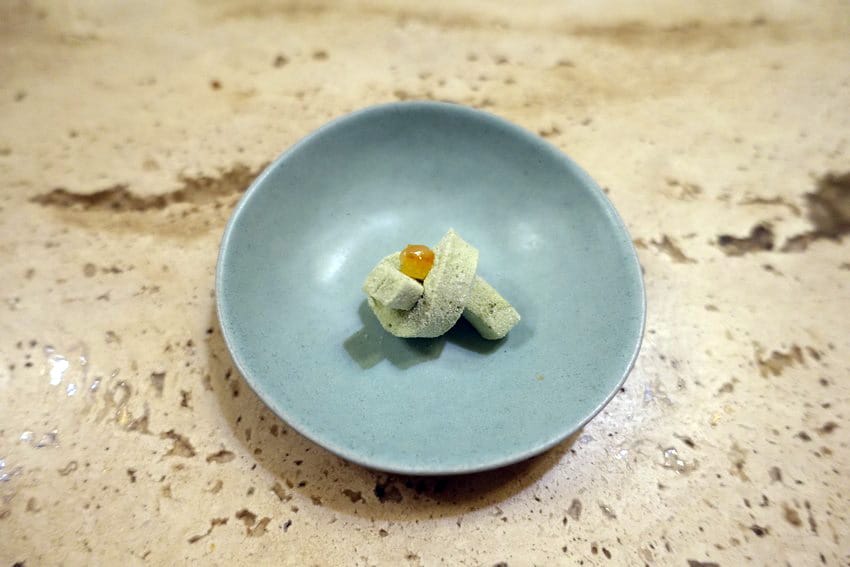
And the “Mango Sorbet” in the dessert also floated in the liquid of coconut.
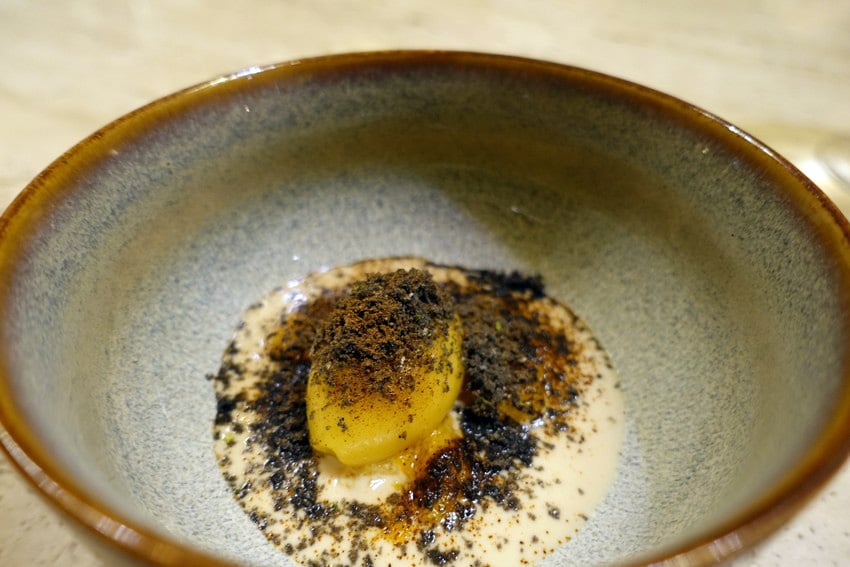
–Restaurant Information on “Nouri”–
Business Hours: Lunch 11:30-14:30, Dinner 18:00-22:30
Holiday: Sun, Lunch on Mon
Telephone: +65 6221 4148
Address: 72 Amoy Street, Singapore
Official web

MAP
▽If you’re looking for Michelin-starred restaurants in Singapore, check out this article▽
▽If you’re looking for restaurants ranked in “Asia’s 50 Best Restaurants,” this article is for you▽
